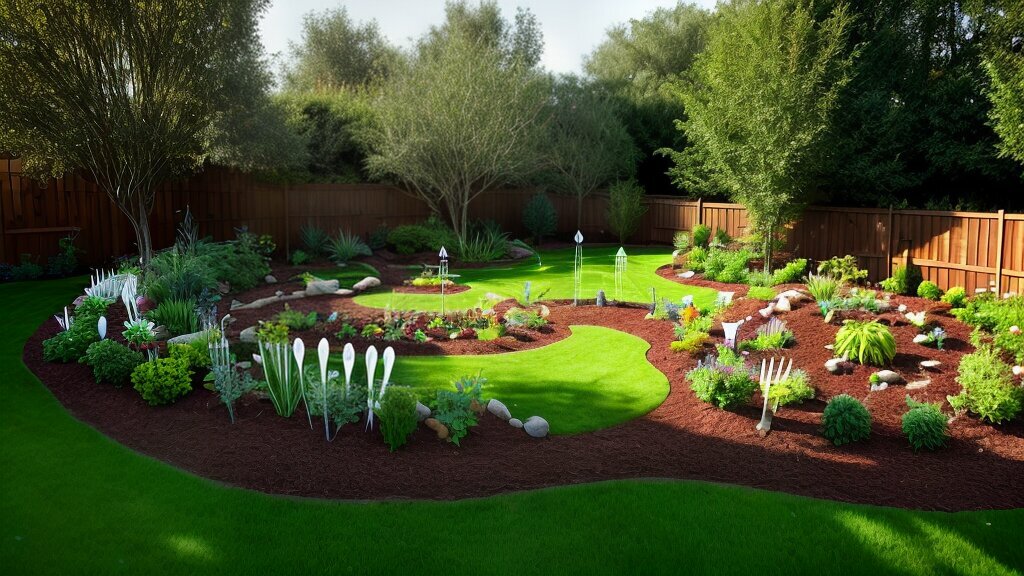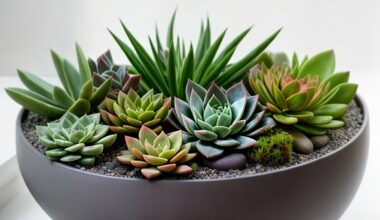Do you struggle with rabbits devouring your garden plants? Are you searching for a safe and effective solution to keep them at bay? You may have heard of using plastic forks as a deterrent, but do they really work?
In this article, we will explore the effectiveness of plastic forks in deterring rabbits and provide practical guidance on how to use them in your garden. We will also discuss safe and alternative solutions for rabbit control and provide comprehensive strategies for a healthy garden.
Key Takeaways:
- Plastic forks can be effective in deterring rabbits from eating garden plants.
- The sharp prongs and visual barrier created by plastic forks can discourage rabbits from approaching vulnerable plants.
- Proper placement and spacing of plastic forks is important for optimal effectiveness.
- Using plastic forks in conjunction with other methods, such as natural repellents and physical barriers, can enhance their effectiveness.
- A holistic approach to rabbit control, including maintaining a healthy garden ecosystem, is crucial for long-term success.
The Effectiveness of Plastic Forks as a Rabbit Deterrent
If you’re struggling with rabbits destroying your garden, you may have heard of using plastic forks as a deterrent. But do they actually work?
The short answer is yes, plastic forks can be effective in deterring rabbits. This is because rabbits are deterred by the sharp prongs of the forks as well as the visual barrier they create. However, it’s important to note that plastic forks alone may not be enough to keep rabbits away from your plants.
To get the most out of using plastic forks as a rabbit deterrent, it’s recommended to use the best type of plastic forks for the job. Look for sturdy, heavy-duty forks with long prongs that can be securely placed in the ground around your plants.
It’s also important to note that plastic forks work best in combination with other rabbit control methods. For example, you can use natural repellents such as a mixture of garlic and chili powder or a spray made from predator urine. Physical barriers such as fences and chicken wire can also be effective in keeping rabbits away from your garden.
Remember, a holistic approach is key to effective rabbit control. Try using plastic forks in combination with other methods to keep your garden safe and rabbit-free.
Using Plastic Forks as a Rabbit Deterrent
Now that you understand the effectiveness of plastic forks in deterring rabbits, it’s important to know how to use them in your garden for the best results. First, identify the plants that are most vulnerable to rabbit damage and focus on those areas.
When placing plastic forks, make sure they are inserted firmly into the ground, with the prongs facing up. The forks should be spaced about 1-2 inches apart to create a visual barrier that deters rabbits.
| Tip: | You can also add additional layers of protection by surrounding vulnerable plants with chicken wire or other physical barriers. |
|---|
It’s important to note that plastic forks may need to be repositioned or replaced over time, especially during heavy rain or wind. Check the forks periodically to ensure they are still in place and working effectively.
As an alternative, consider using biodegradable forks made from bamboo or other natural materials. These forks will break down over time and won’t harm the environment.

Remember, using plastic forks is just one method of rabbit deterrence. By combining it with other strategies and maintaining a healthy garden ecosystem, you can effectively protect your plants from rabbit damage.
Safe and Alternative Solutions for Rabbit Control
While using plastic forks as a rabbit deterrent can be effective, there are other safe and alternative solutions for rabbit control in the garden. Here are some options to consider:
- Natural repellents: Certain plants and herbs, such as lavender and marigolds, have strong scents that rabbits find unappealing. You can also use natural sprays made with ingredients like garlic, eggs, or hot peppers to deter rabbits.
- Physical barriers: Installing fences or chicken wire around vulnerable plants can be an effective way to keep rabbits out. Just make sure the barriers are high enough, as rabbits can jump up to 3 feet in height.
- Selecting rabbit-resistant plants: Certain species of plants, such as daffodils and lilacs, are less attractive to rabbits. By planting these varieties in your garden, you can reduce the risk of rabbit damage.
It’s important to note that some traditional rabbit control methods, like using poisons or traps, can be dangerous to other wildlife and pets. Always opt for eco-friendly and safe solutions to protect your garden and the surrounding ecosystem.

Effective Rabbit Deterrence Strategies for a Healthy Garden
Deterring rabbits from your garden is not just about using plastic forks or other physical barriers. A holistic approach to garden maintenance is the key to effective rabbit control. By promoting a healthy garden ecosystem, you can minimize the risk of rabbit damage and enjoy a thriving garden. Here are some effective strategies to consider:
- Choose rabbit-resistant plants: Certain plants are less attractive to rabbits than others. Consider planting daffodils, alliums, marigolds, or lavender, which rabbits tend to avoid.
- Use natural rabbit repellents: You can create a homemade rabbit repellent by mixing water, dish soap, and cayenne pepper. Spray the solution around the perimeter of your garden to deter rabbits. You can also use predator urine or blood meal, which repel rabbits due to their strong odor.
- Focus on garden maintenance: A well-maintained garden is less likely to attract rabbits. Keep your garden clean and tidy, remove any debris or dead leaves, and prune plants regularly to prevent overgrowth.
- Install fencing: If you have a severe rabbit problem, consider installing a fence around your garden. A two-foot wire mesh fence sunk below ground level and extending at least three feet above the ground is effective in keeping rabbits out. Make sure the gate is secure.
- Use companion planting: Companion planting is a strategy that involves planting certain plants together to enhance growth and deter pests. You can plant onions, garlic, and chives around your vulnerable plants to repel rabbits.
- Consider using decoys: Placing decoys such as plastic snakes or owls can trick rabbits into thinking potential predators are nearby, causing them to stay away from your garden.
By combining these strategies with the use of plastic forks or other physical barriers, you can create a garden environment that is unappealing to rabbits. Remember to experiment and find the best combination of strategies that work for your specific garden needs.

Conclusion
Congratulations! You’ve made it to the end of our article on using plastic forks as a rabbit deterrent. We hope you found the information helpful and informative. Remember, plastic forks can be an effective and cost-efficient way to keep rabbits away from your plants. However, it’s important to remember that they should be used in conjunction with other methods for maximum effectiveness.
Don’t be afraid to experiment with different strategies to find what works best for your specific garden. Consider using natural repellents, physical barriers, and selecting rabbit-resistant plants to enhance your garden’s protection against rabbits. A healthy garden ecosystem is also crucial in deterring rabbits, so make sure to practice proper fertilization, watering, and other cultural practices.
At the end of the day, the key to effective rabbit deterrence is to stay vigilant and proactive in protecting your plants. By combining different strategies and taking a holistic approach, you can have a beautiful and flourishing garden that’s free from rabbit damage.






